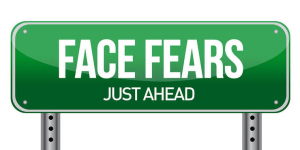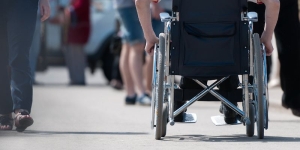Vulnerability
The human baby is probably one of the most vulnerable creatures on this planet. Unlike most other species, it needs careful and continuous monitoring and attention from the time it is conceived and long after it is born. It just cannot do anything for itself for many many years. It cannot, walk, talk, ask for food, find food, feed itself, seek shelter and obtain clothing. It cannot hunt, cannot defend itself against impending danger and is unable to protect itself from predators and move itself out of harms way. It is totally dependent on its ‘mother’ to give it a chance to survive after it is born. Of course there are many other people involved in the chain but eventually it is the responsibility of the parents to raise and take care of this child.
Change
The circumstances may change dramatically for children, who may be subjected to premature orphanage, divorce, accidents, mental instability, death of a spouse and ill health of the people who are responsible for their well-being. Studies conducted by organizations on serious case reviews continue to highlight process improvements to ensure continuity of robust social services for children. Despite this, children are being let down. Why?
Social Responsibility
The natural social structures are supposed to be there to afford safety and security for children. The family unit, parents, grandparents, uncles and aunts, and friends. However, the economic and social demands of society, independence, working parents, career development, globalization and technological advances have altered the course of civilization so radically that social displacements have become inevitable. Sadly, the weakest have become the most vulnerable and children increasingly the target. Governments have recognized this scenario change and have mechanisms in place to fill the gaps. Unfortunately, what’s in place in not working as corroborated by the statistics on child abuse and mortality, and daily reports of mishaps and cruelty inflicted on children.
Strategies
One of the most significant questions raised is why? Why are there still so many atrocious misdemeanors and abuse on children being perpetrated and why are these situations happening despite the systems and processes in place by Social Services. Why are they failing and what can be done to reverse the trend and eradicate this terrible act from society? What new strategies can be deployed to continue to improve the safety and security of children.
Transparency
Generally, if they see they will stop. Case studies show that child abuse in many cases has been perpetrated for a long period unnoticed. It has been hidden from public view and from the authorities and only gets the headlines when something sinister happens. What can be done to increase transparency? At the moment, the child is at the mercy of the social worker calling and even in that situation, any signs of abuse are most often craftily concealed. Unless the social worker is an expert and brave enough to probe the situation deeper, the situation may go unnoticed until it is too late.
Governments and social responsibility organisations are urged to explore technologies to increase transparency and help increase child safety and security.
Increase in Government Sponsored Media
In many countries, governments spend a lot of money propagating on selective social issues such as drugs and alcohol abuse but very little on child abuse. Governments should increase their media spend on protecting the interest of children and send out very strict warnings to the perpetrators. Creating awareness in the public arena is paramount in helping to the fight the crime against children and supporting the efforts of social services.
Incentivise Dob-In
This is one situation where dob-in should be encouraged. People do notice and are aware of the going-on in the house next door but are too afraid to report the problem to the authorities. All dob-ins should be taken seriously and the situations thoroughly investigated. Where there is smoke there is fire – principle to be applied when it concerns children.
Harsher Punishment for the Crime
The law should reflect the seriousness of the crime and so harsh that it acts as a permanent deterrent against child abuse and sends a very strong message across the nation.
Widen Consultation and Investigations
Family members such as grandparents etc., should be consulted and taken seriously when allegations are made. Research has shown that far too often social services do not act on third party reports or have failed to act on these reports.
Social Workers – Training
Social workers should be continually trained and tested in simulated situations to develop their intuitive skills. Also, the situation of child abuse is sufficiently serious to warrant selective dual social worker visits to suspected situations. One can make observations whilst the other is engaged in dialogue. A single investigator could easily miss the vital signs and signals.
Frequency of home Visits.
The frequency of visits to homes should be increased and spontaneous. Too often, cases have been reported of infrequent professional visits and adverse situations have been missed.
Schools to be more vigilant
Schools should be more vigilant and report any unusual behavior in the classroom. The indicators are all there and listening to fellow students about behavior or any bits of information to suggest that something is not making sense should be reported.
Interview of Children
Social services professionals should regularly interview the concerned children and probe into their individual situations. They should build a level of confidence in the children to facilitate tapping into their life and establish what is really going on.
Social Services Specialists
This is a very important area of service to the community, the country and ultimately to the world. Future leaders and people who will inhabit the world will come from these children amongst others. Every effort to protect them from harm, provide safe and secure conditions for them to grow and flourish is something that one cannot put a value on. How we treat the social service specialists is just as important and they should be regarded as some of the most valuable people to society. They should be given all the resources and support to do their work in a proficient and safe manner. Their reward and recognition should be consistent with the importance of the work they do.
What can we do?
All suggestions welcome!







